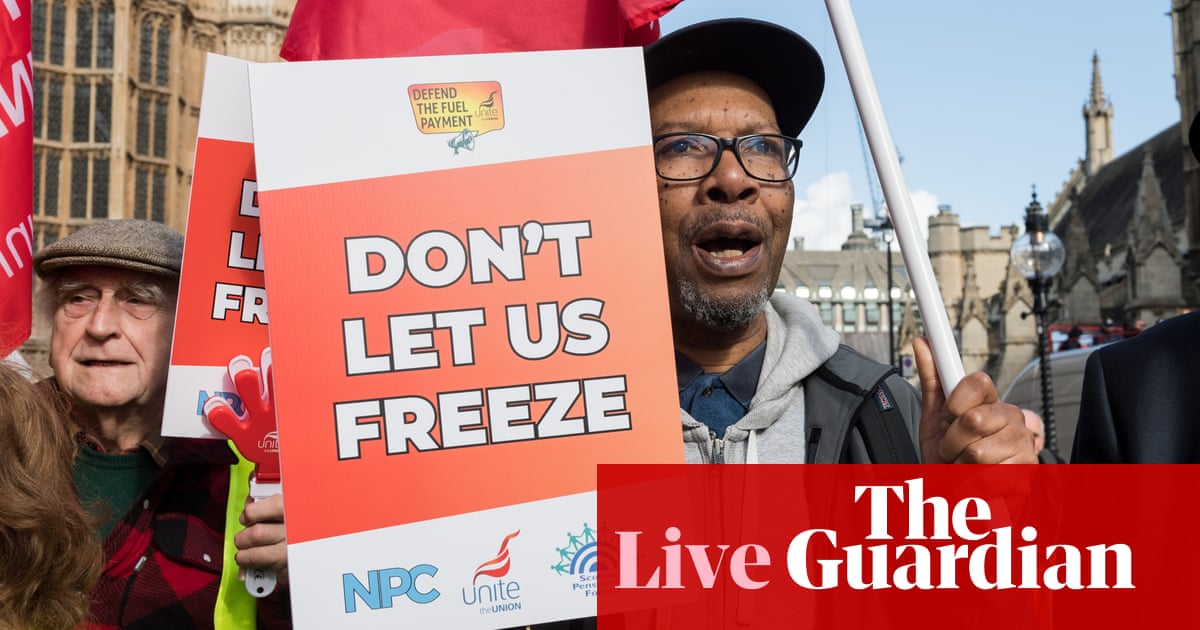Good morning. Parliament is back after the bank holiday weekend, and in the Commons the main items on the agenda is a general debate on the 80th anniversary of VE and VJ day. But of course MPs will be preoccupied with the repercussions of the local elections in England, which were won by Reform UK in a victory so overwhelming it could reshape UK politics.
On Friday Keir Starmer responded to the results by saying the government neededto go “further and faster”– implying there was nothing wrong with its policy direction, just the pace at which change is happening.
But, asPippa CrerarandJessica Elgotreport in the Guardian this morning, in reality Downing Street is mulling over the possible need for policy change, and there is talk of revising the winter fuel payment cut.
Wes Streeting, the health secretary, is doing the morning interview round for No 10 this morning (no surprise there – is he ever not doing it?) and, although he has been given multiple opportunities to knock down this story, he has conspicuously failed to do so.
On BBC Breafast, asked by the presenterJohn Kayif there might be a change to the winter fuel payments policy in the next few weeks or months,Streetingreplied:
On the Today programme, asked byJustin Webbif he could rule out the winter fuel payments policy being reconsidered,Streetingsaid:
But, if this was the No 10 rebuttal, Streeting did not try very hard to make anyone think that it means the Guardian story is wrong. Streeting also repeated the point about how, if the policy was being reviewed, he would not have been told about it anyway. And he went on:
Asked if he would advise Starmer that the winter fuel policy should change, Streeting said he would give his advice to the PM in private. (He did not say he would tell Starmer to stick with the policy.)
I will post more from Streeting’s interviews, and other reaction to the Guardian story, shortly.
Here is the agenda for the day.
9.15am:Eluned Morgan, Welsh first minister, gives a speechcriticising the UK government’s proposed cuts to sickness and disability benefits.
9.30am:Keir Starmer chairs a normal cabinet meeting, followed by a political cabinet.
10am:More in Common releases its analysis of the local election results, which includes new polling that helps to explain the results.
Morning:Kemi Badenoch is on a visit in London.
11.30am:Wes Streeting, the health secretary, takes questions in the Commons.
2.30pm:Sarah Pochin, the new Reform UK MP for Runcorn and Helsby, is expected to take her seat.
2.30pm:Dame Melanie Dawes, chief executive of Ofcom, and Lord Grade, its chair, give evidence to the Commons culture committee.
2.30pm:John Swinney, Scotland’s first minister, gives a statement to MSPs about plans to improve access to GPs in Scotland.
If you want to contact me, please post a message below the line when comments are open (normally between 10am and 3pm at the moment), or message me on social media. I can’t read all the messages BTL, but if you put “Andrew” in a message aimed at me, I am more likely to see it because I search for posts containing that word.
If you want to flag something up urgently, it is best to use social media. You can reach me on Bluesky at @andrewsparrowgdn.bsky.social. The Guardian hasgiven up posting from its official accounts on Xbut individual Guardian journalists are there, I still have my account, and if you message me there at @AndrewSparrow, I will see it and respond if necessary.
I find it very helpful when readers point out mistakes, even minor typos. No error is too small to correct. And I find your questions very interesting too. I can’t promise to reply to them all, but I will try to reply to as many as I can, either BTL or sometimes in the blog.
